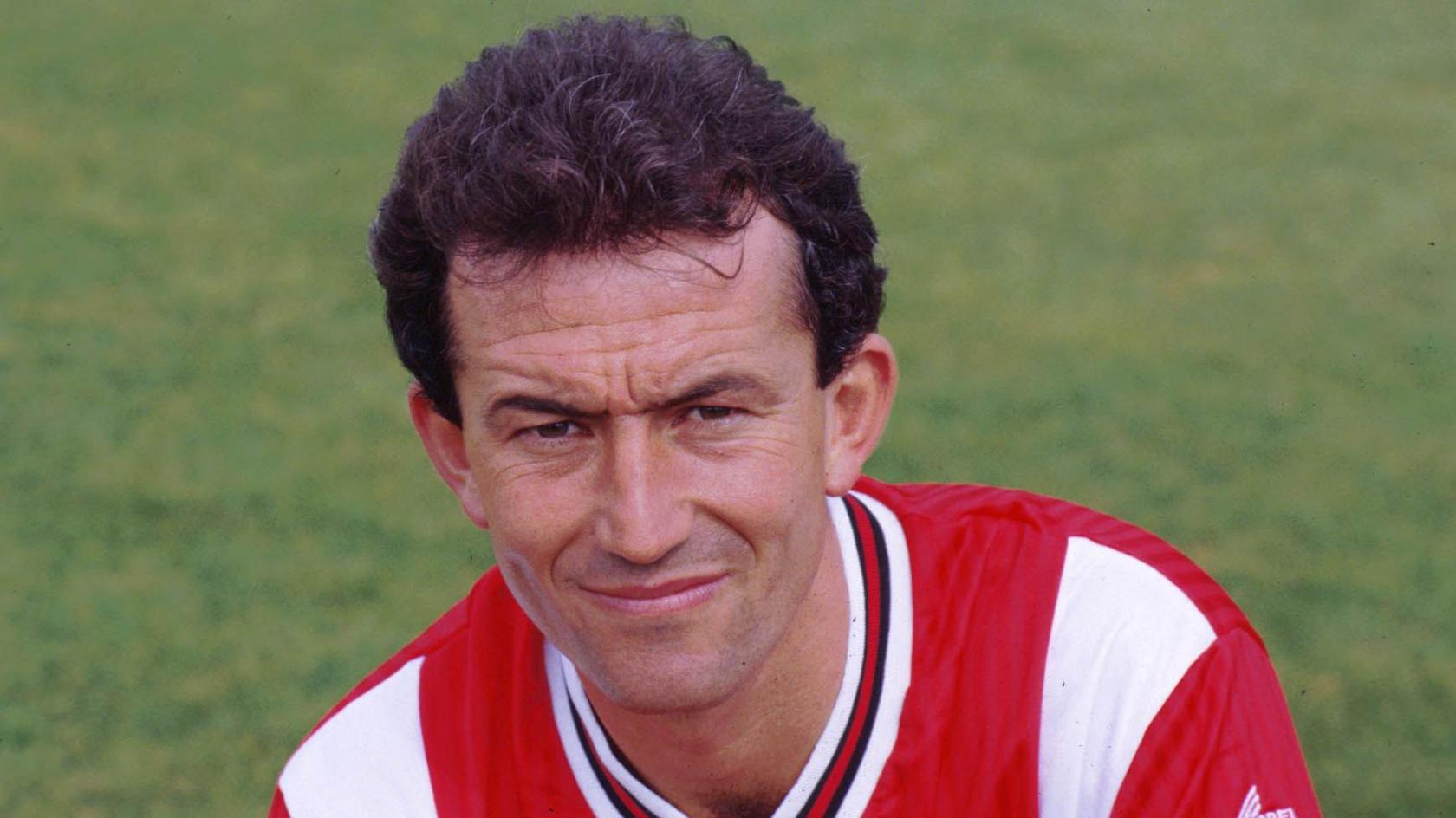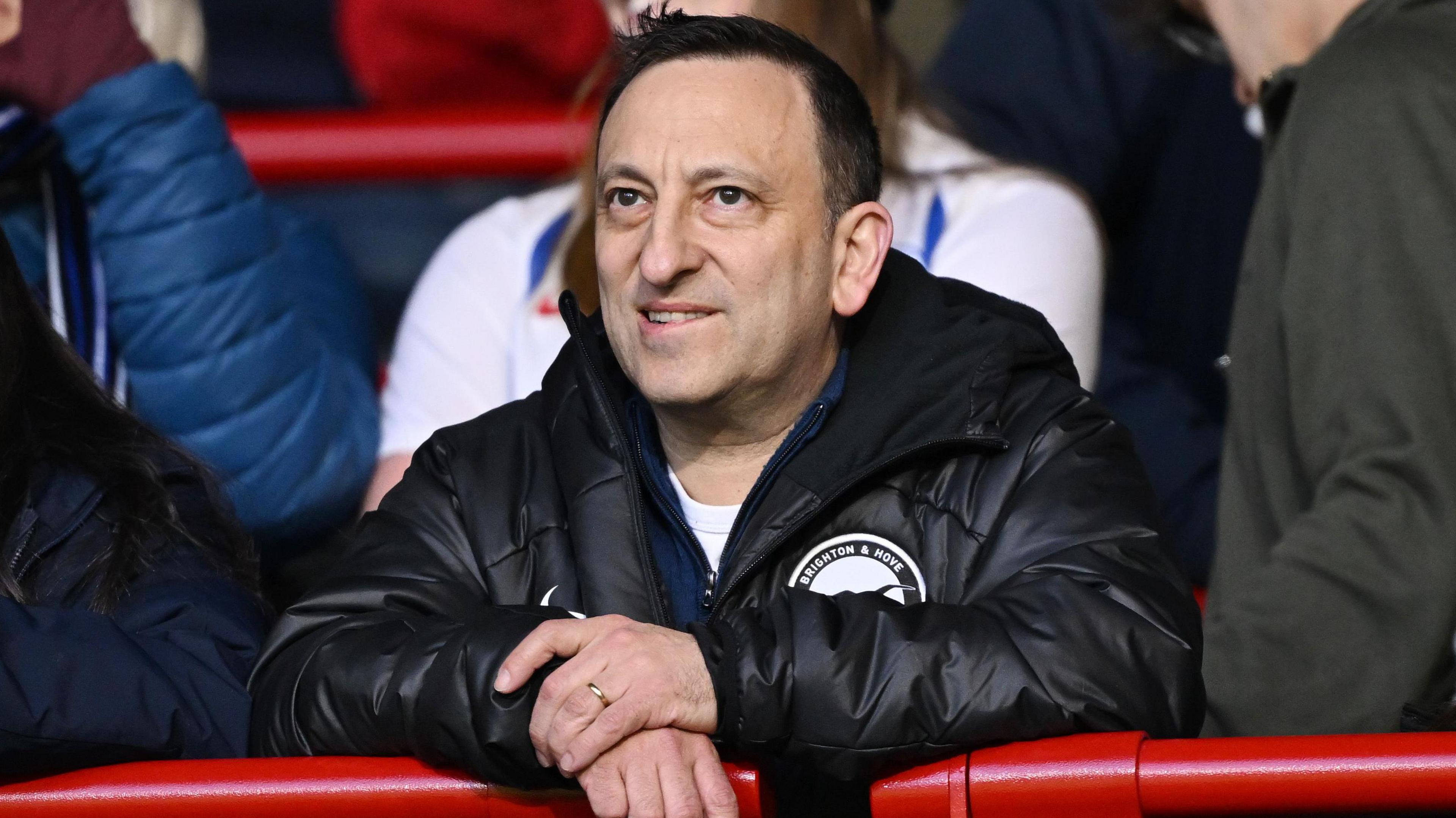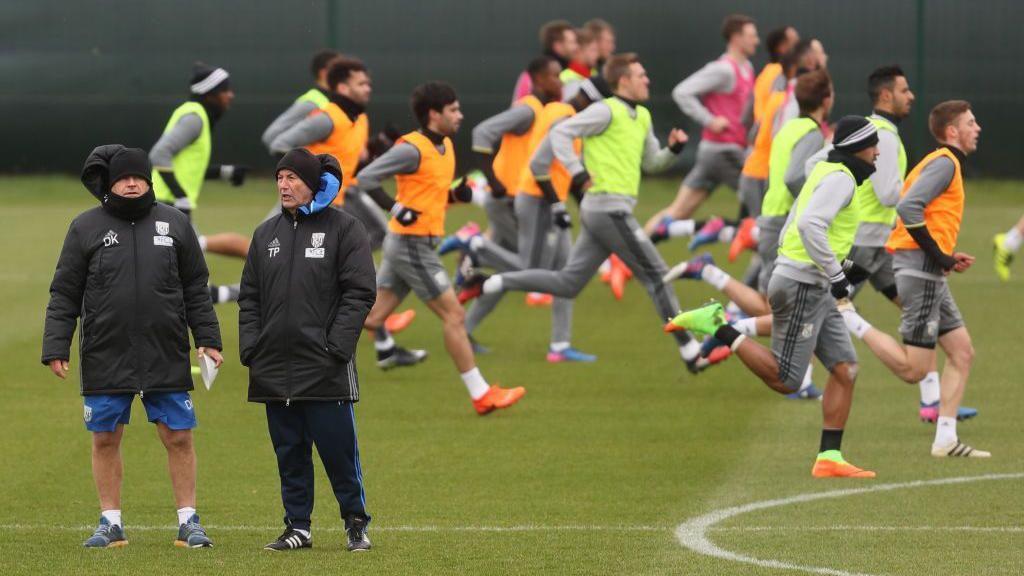
One of the biggest differences between being a manager now and when I started out 33 years ago is the amount of data used by football clubs.
So much of the modern game is driven by it and not just in the recruitment of players - it's also used for looking after them, in the medical and sports science departments too.
It has led to some amazing innovations since I began my time in the dugout at Bournemouth in 1992 - the same year the Premier League era began - but I would argue there are many ways it has made a manager's job harder, not easier, compared to what is now viewed as old-school.
When I look back at those early days, there were only three people running the club - the chairman, secretary and manager.
Now it has changed completely.
Running alongside the first team and reserves, you've got an academy for boys and girls, a medical department, a fitness team and of course recruitment too. Each can consist of an army of workers, who are driven and directed by heads of department.
They are all separate entities striving to meet their own objectives and they often build different identities too, with data dictating the direction.
And, while before they were totally in control, the managers or head coaches of today are often subservient to the people running these departments, and their decisions.
What I find interesting is to see how many of those other people leave the club when the manager gets sacked, when they have had such a big influence on the culture of it.
I am not saying any of these departments should not exist, because each one is vitally important, but I still think the person who stands on the touchline for 90 minutes should be the one who has the final say on the most important things that affect the first team at any club.
'My database was in my own head'

Pulis was player-coach at Bournemouth under Harry Redknapp before getting his first management job with the Cherries at the age of 34, when Redknapp left for West Ham in 1992
Each head of department now is instructed and guided by the director of football, who usually works especially closely with recruitment - an area that is almost certainly data driven.
I am going to sound like a dinosaur again here, but I signed hundreds of players during more than three decades as a manager, and not one of those signings was data driven - unless you count the database that existed in my own head.
That database was based on my own information I gathered each week, watching live league, reserve and non-league games, and making contacts with different scouts and managers from every level. In those days, being at training at 8am each morning and getting home past midnight was expected, and most managers then did the same.
We had a network of scouts in different parts of the country but we still did a lot of travelling to speak to people about players they had seen, young and old.
If a player was recommended to me, I would always try to follow it up by watching him at least three times, with two of those occasions being away from home because I always believed that if he was a good character, that aspect would shine more in away games.
In those pre-internet days, the Rothmans Football Yearbook was my bible, and it was priceless for identifying information on players from every team in the league.
I started out as a player-coach at Bournemouth under Harry Redknapp and he showed me the value of having that knowledge.
It was a great lesson for me as a young coach that I had to know what was out there, and getting the recruitment right proved as vital to me over the years as it is to the managers working today - that part has not changed.
'Unless everything is joined up, you will never be successful'
 Image source, Getty Images
Image source, Getty Images
Jamestown Analytics is the football-focused analytics company set up by Brighton majority owner and chairman Tony Bloom, which is used by the Seagulls to guide them on signings
I managed the recruitment at all my clubs. I would tell my scouts and coaches what I wanted and then did my homework on their recommendations and watched them in action.
The more the years passed, the more noise there would be in this area from other people inside the club, but I always insisted on being the person who made the final decision.
My scouts and coaches knew exactly what type of players I wanted for each position. I often saw good players, but did not try to sign them because they did not fit the identity of the team I was managing at the time.
Ideally, that kind of thinking is used in the data-driven model which is prevalent today - where the profile of signings is aligned to the identity of the club and what the manager needs.
Brighton, Brentford and Bournemouth are good examples of where it has worked brilliantly, but there are a few more established Premier League clubs who have not used it as successfully.
It is amazing how they unearth these players, and it is having access to this information that has turned the Premier League into a world league, where more than 65% of its players are foreign.
But, irrespective of having data as an incredible tool to discover new talent, being a dinosaur I would still always insist on viewing the player before they were signed, and I am sure most managers now would want that too.
If the player I signed did not fit the bill, and there were many, then I was more than happy to raise my hand and accept full responsibility.
It does not always happen that way anymore, however, and it has irked me to hear that some of the players brought in to a club have not had the manager's approval, or even been seen by him.
Unless everything is joined up, you are never going to be successful.
Young managers today often don't know anything different but when I speak to them about this, I always remind them that at the end of the day, it is you who is in front of the dugout when your team is playing, and because it's your job that's on the line, then the team should be of your making.
So you have got to be strong and make sure the players coming in are better than what you've got, based on data or what you can see for yourself. If you can trust the person who is signing them, happy days... if not, you're in trouble!
'Common sense should apply to player fitness too'
 Image source, Getty Images
Image source, Getty Images
Pulis (front right) and his assistant Dave Kemp oversee a training session at West Brom in 2017
The same issues apply to the sports science and medical departments, who have come to the fore in most professional clubs.
In my day, and especially early in my management career, I had a very simple and successful guide to know whether my fitness work was effective or not. If my players were moaning and sweating, I knew they were working hard enough!
Every department I have mentioned has grown not only in size but also in expense. They each have a specific and important role, reflected by their cost to the club, and for me as a manager it was important each head of department was made accountable for their actions.
I always felt fitness coaches and sports science departments should be challenged. They are vitally important to the manager's preparation so should shoulder responsibility for fitness levels and certain injuries.
For example, injuries to knees, ankles and joints were always looked on differently to muscular injuries which, for me, were definitely classed as preventable.
I worked with some fantastic doctors and medical teams, but they always knew they were working for the benefit of the club and not for the comfort of injured players.
That was my thinking when we built a new training ground at Stoke. I only wanted two beds in the medical room but by the time they had finished it, there were five. I went to the club's chairman, Peter Coates, who said, 'what's the problem?'.
I said, 'Peter, if you have two beds, you'll have two people injured in there. If you have five beds, there will be five of them lying there, because it is a comfort room for people who are not in the team and it breeds the wrong culture'.
In the end I got what I wanted - two beds - and if you were not injured you were banned from going in. I didn't want anyone at my club thinking that an easy-ozy attitude was acceptable - and I'd stand by that today.
Tony Pulis was speaking to BBC Sport's Chris Bevan.
.png)
 16 hours ago
2
16 hours ago
2








 English (US) ·
English (US) ·